Savita Murmu is an agri-entrepreneur and she earns about Rs 25,000 a month with a profit of Rs 15,000. It was not always like this for Savita, who comes from the village of Hesapoda in Gola Block, Ramgarh district, Jharkhand.
“Before 2018, I only grew a few vegetables on my 1.5 acres of land and earned about Rs 2,000,” Savitha, who belongs to the Santhal tribe, told Gaon Connection.
Things changed when the non-profit Transform Rural India Foundation (TRIF), stepped in. TRIF personnel encouraged Savita to start a saplings nursery on 4 dismils (100 dismils= 1 acre) of her land, and provided her the training to do so. She learnt how to gauge the soil, which sapling required what kind of soil, how to pick the best seeds and how to make her own herbal pesticides and use it.
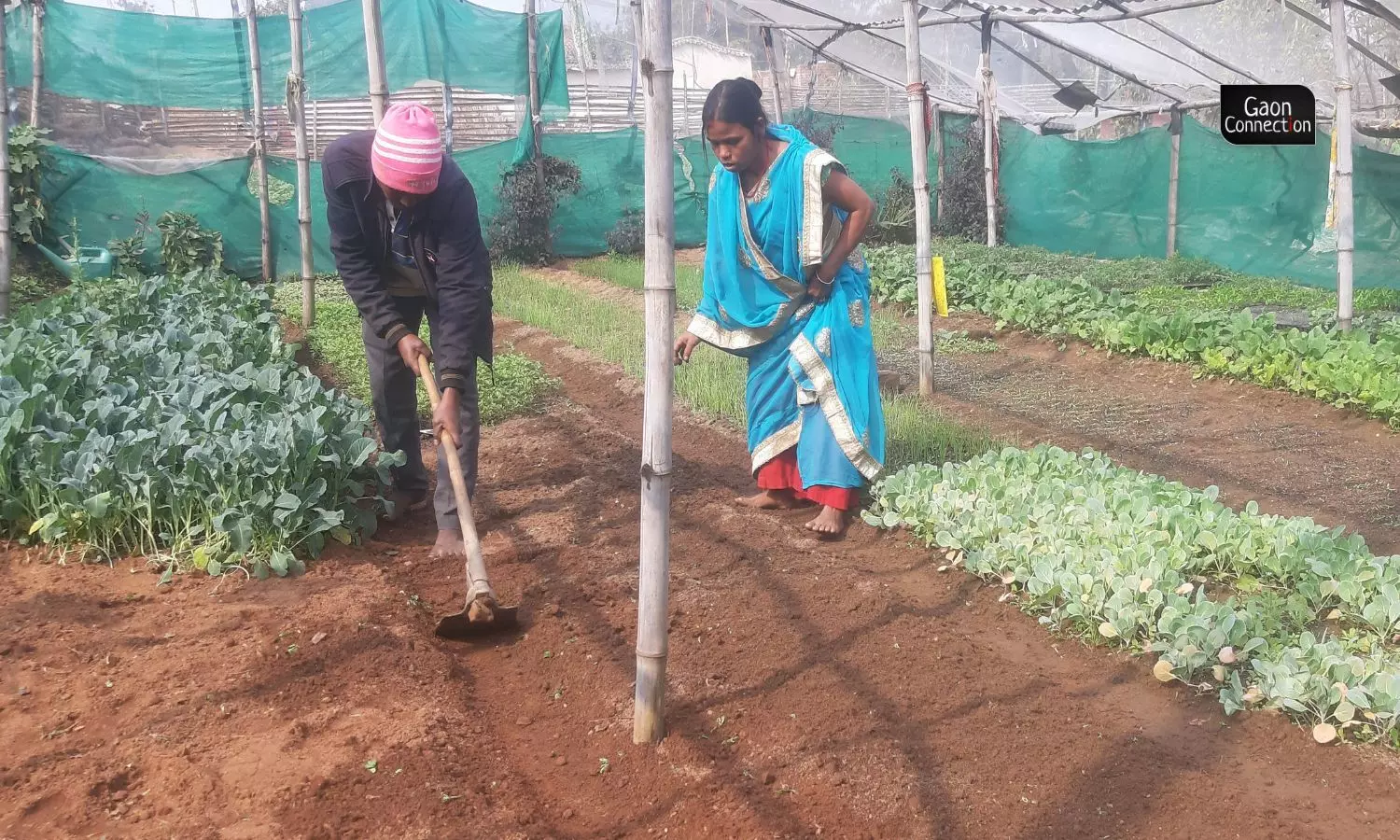
Savita Murmu with her husband Nand Kishor Murmu at her nursery in Hesapoda village.
Today, the nursery that Savita began is reaping rich dividends for her. “My husband has become a farmer from being a driver, and many farmers in my village take good quality vegetable saplings from me,” she said proudly. She also grows vegetables in the rest of her field, and her saplings have doubled the production of the farmers when compared to previous years, she said.
TRIF provides training to rural youth and women to set them up as entrepreneurs. “Altogether 89 farmers were trained to become agri-entrepreneurs in Ramgarh district of which over 50 per cent are women,” Ratan Kumar Singh, an agri entrepreneur manager in TRIF (Ramgarh), told Gaon Connection.
TRIF connected these trained farmers to SHGs and banks for loan facilities and support in order to go forward in their business plans, besides providing them with wherewithal such as seeds and nets, Singh said.
From daily wage labourer to farmer and nursery owner
Before turning an agri-entrepreneur, life for Savita and her husband Nand Kishor Murmu was a struggle and they could barely make ends meet and provide for their three children.
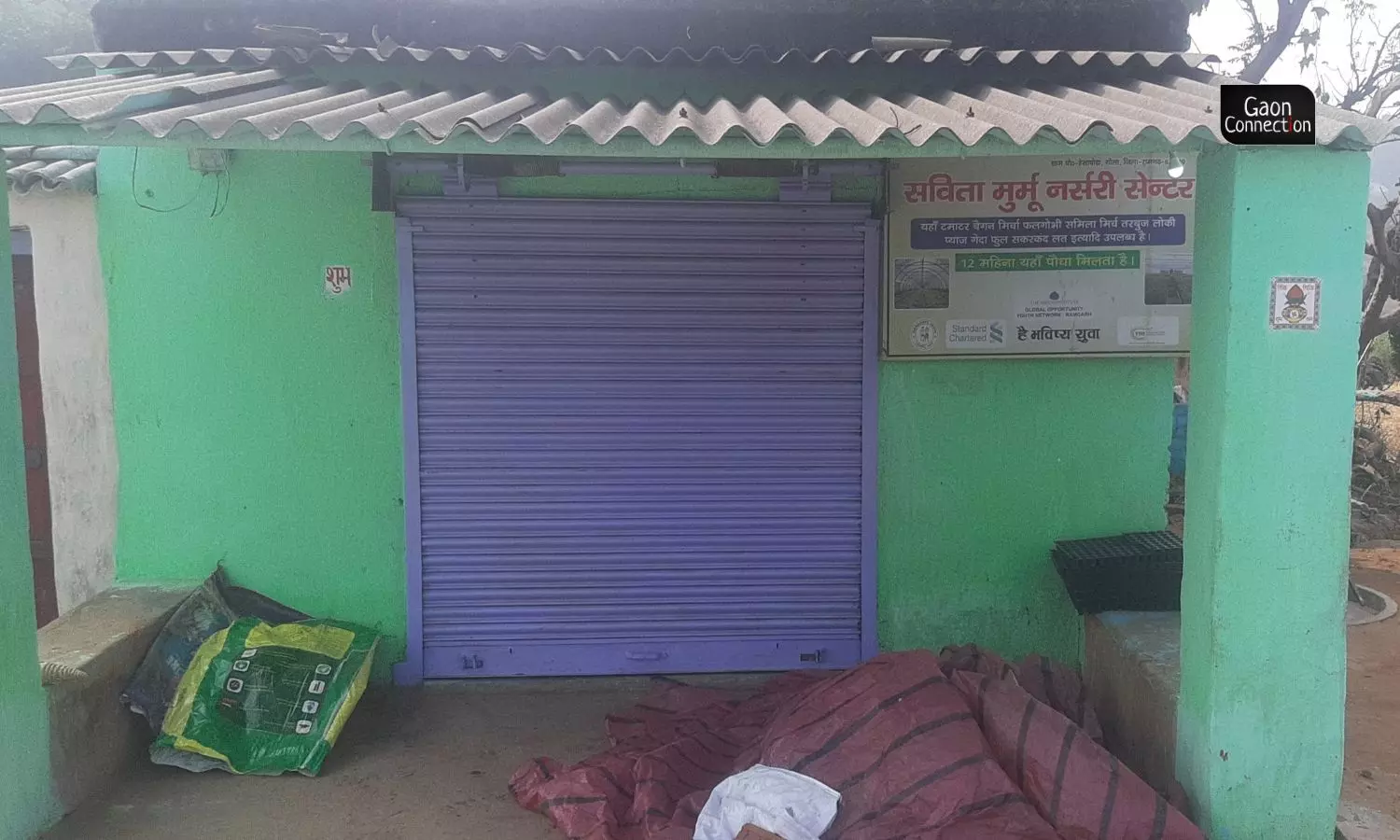
Today, the nursery that Savita began is reaping rich dividends for her and many farmers in her village take good quality vegetable saplings from her.
“We did not have enough to eat and providing education for my children was a forbidden dream. My husband worked as a driver but still, affording even the basic necessities such as clothing and food was a struggle,” she said.
After TRIF trained Savita in setting up the nursery, Nand Kishor quit his job as a driver and joined his wife in her entrepreneurship. He helped with the advertising and marketing of her nursery saplings.
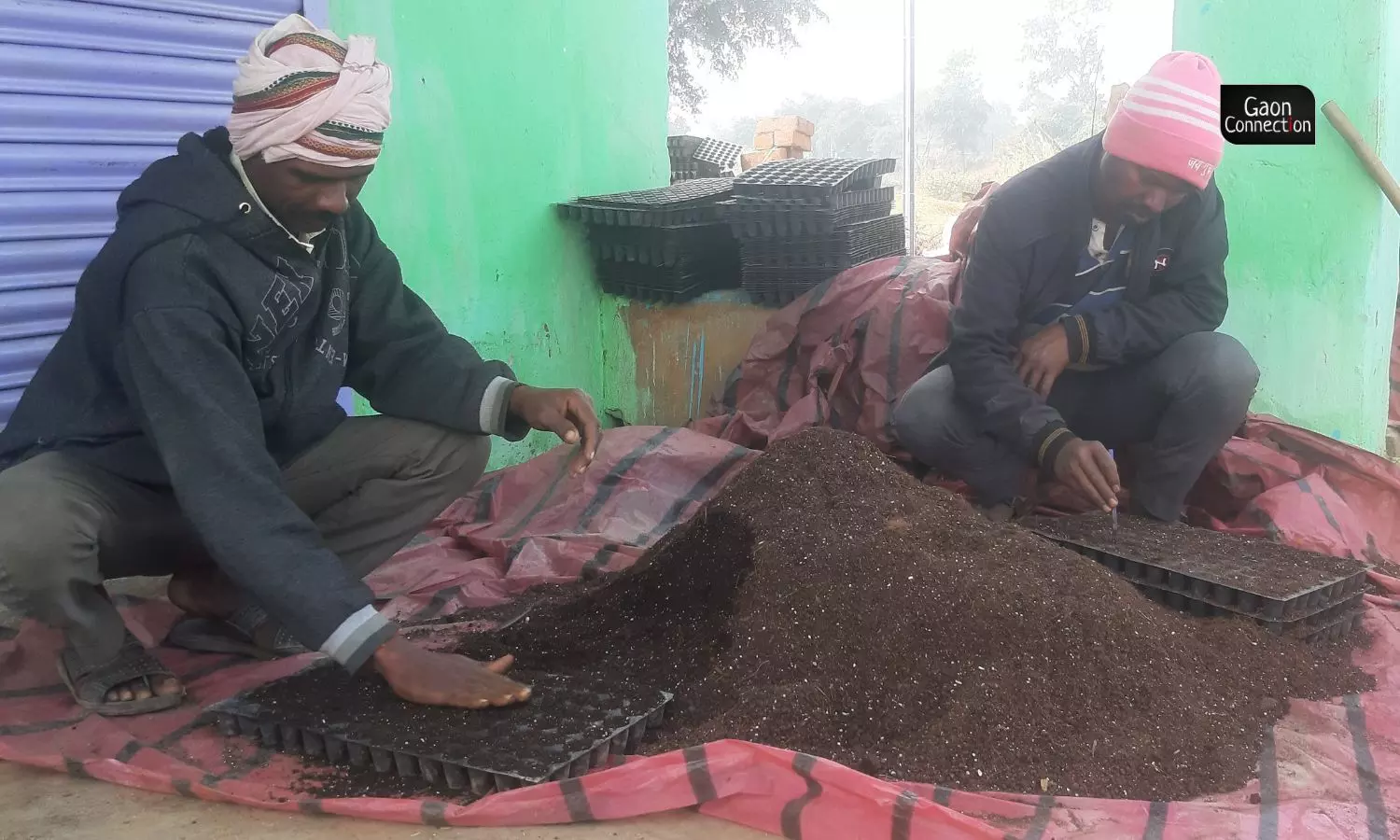
Nand Kishor Murmu making herbal pesticide for nursery in Hesapoda village.
Also Read: Training in cultivation and animal husbandry empowers Birhor tribal women in Jharkhand
“In the first lot of saplings we sold, we just broke even and made no profit. When I began using social media to advertise our saplings through Facebook and WhatsApp, enquiries began to pick up,” Nand Kishor told Gaon Connection.
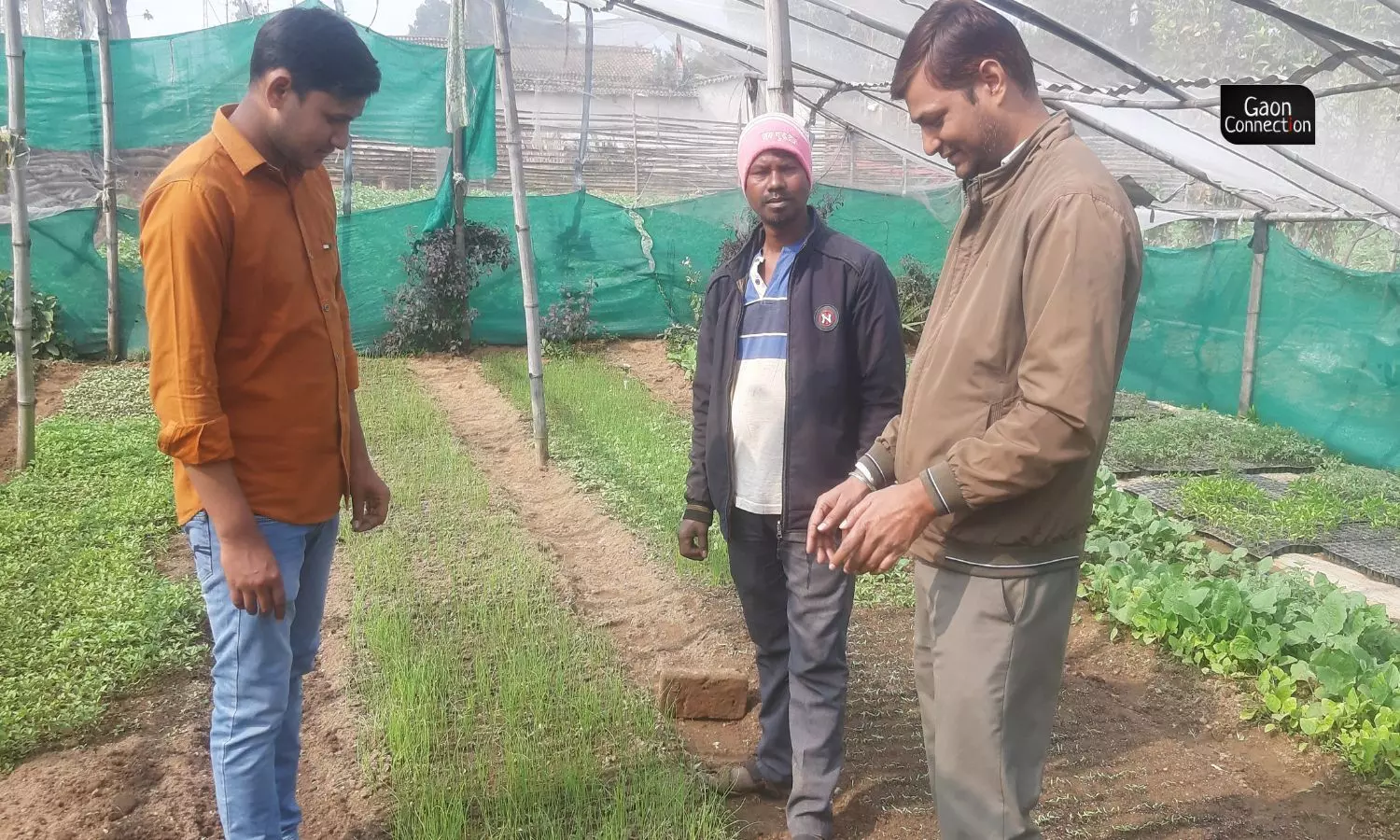
TRIF personnel at Savita Murmu’s nursery in Hesapoda of Gola block in Ramgarh.
Nand Kishor gave all the credit to his wife for the improvement in their lifestyle. “Earlier, I worked for hours and yet struggled to feed my family. But now, I just put in a couple of hours of work a day in the nursery and in the rest of our land, and it is enough to feed the family,” he said.
Herbal saplings to double the productivity
The husband and wife convinced farmers that their saplings would ensure a better yield and preserve and improve the quality of their soil.
“I use herbal pesticides on my plants to ensure better productivity. I use quality seeds and vermicompost on the saplings that are prepared in trays. It takes about three months for the saplings to be ready,” Savita explained.
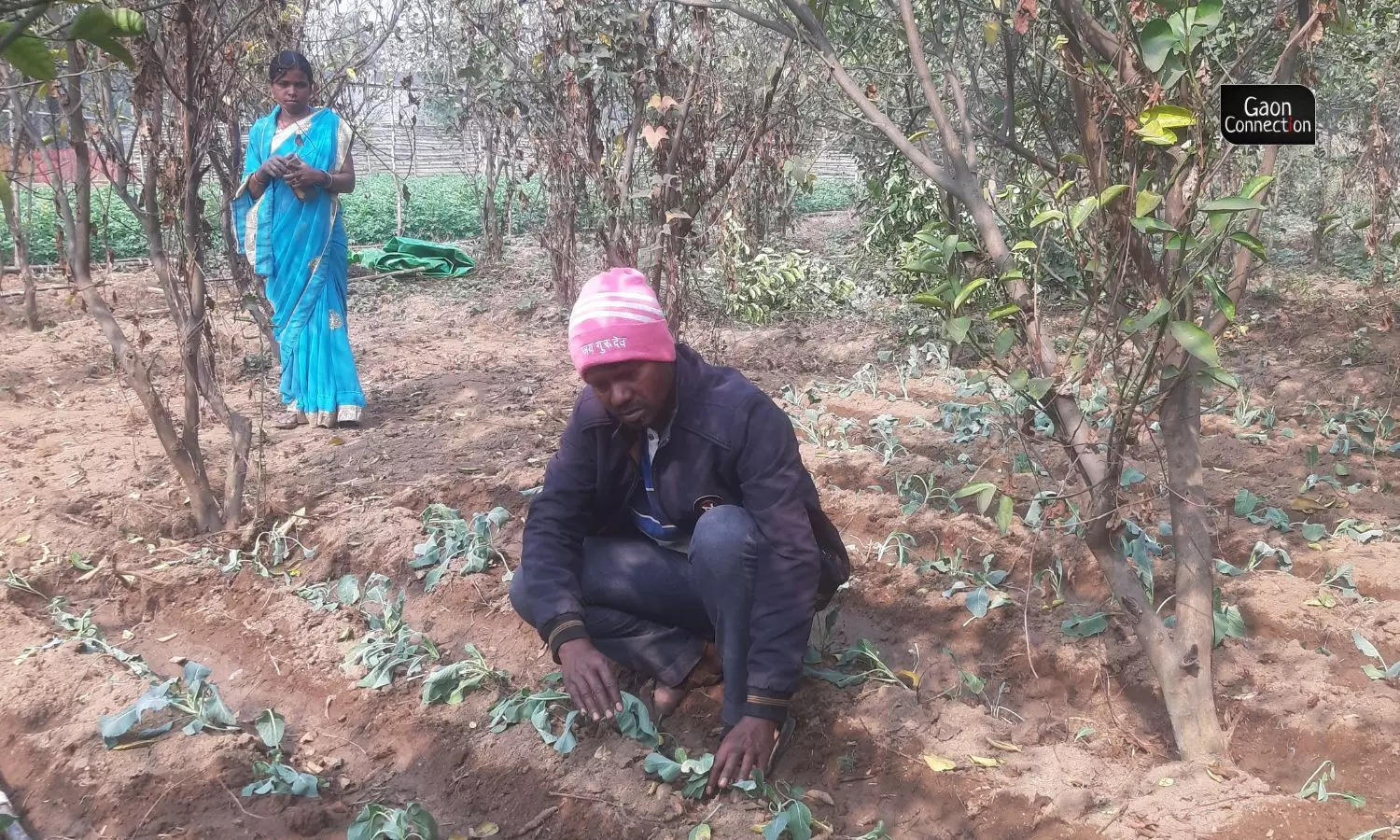
Savita learnt how to gauge the soil, which sapling required what kind of soil, how to pick the best seeds and how to make her own herbal pesticides and use it.
Each tray of 100 saplings, depending on which flower or vegetable sapling it is of, sells at anything between Rs 100 and Rs 300. “Every month we sell around 25,000 saplings from our nursery. We also grow vegetables and flowers on our own land and sell them in the local market,” Savita said.
Savita and Nand Kishor have been able to repay the loan they took to buy a tractor, with the profit the nursery made for them. “Our two daughters go to a good school and our son is studying at an Industrial Training Institute. We are even planning to build a pucca house by 2024,” he said. Their present home is a kuchcha one.
Also Read: A portal with registered nurseries from across India. Go ahead and order your favourite sapling!
Preparing the nursery
Savita and her husband grow tomato, onion, cucumbers, radish, cornflower, chilli, brinjal as well as seasonal flowers on the rest of the land.
In order to prepare the saplings, Savita soaks seeds in hot water for a day and then wraps them up in cloth to allow them to germinate. The seeds are then mixed with the soil and herbal pesticide and laid out in trays where it remains for about 25 days. Savita prepares the saplings of seasonal vegetables and flowers.
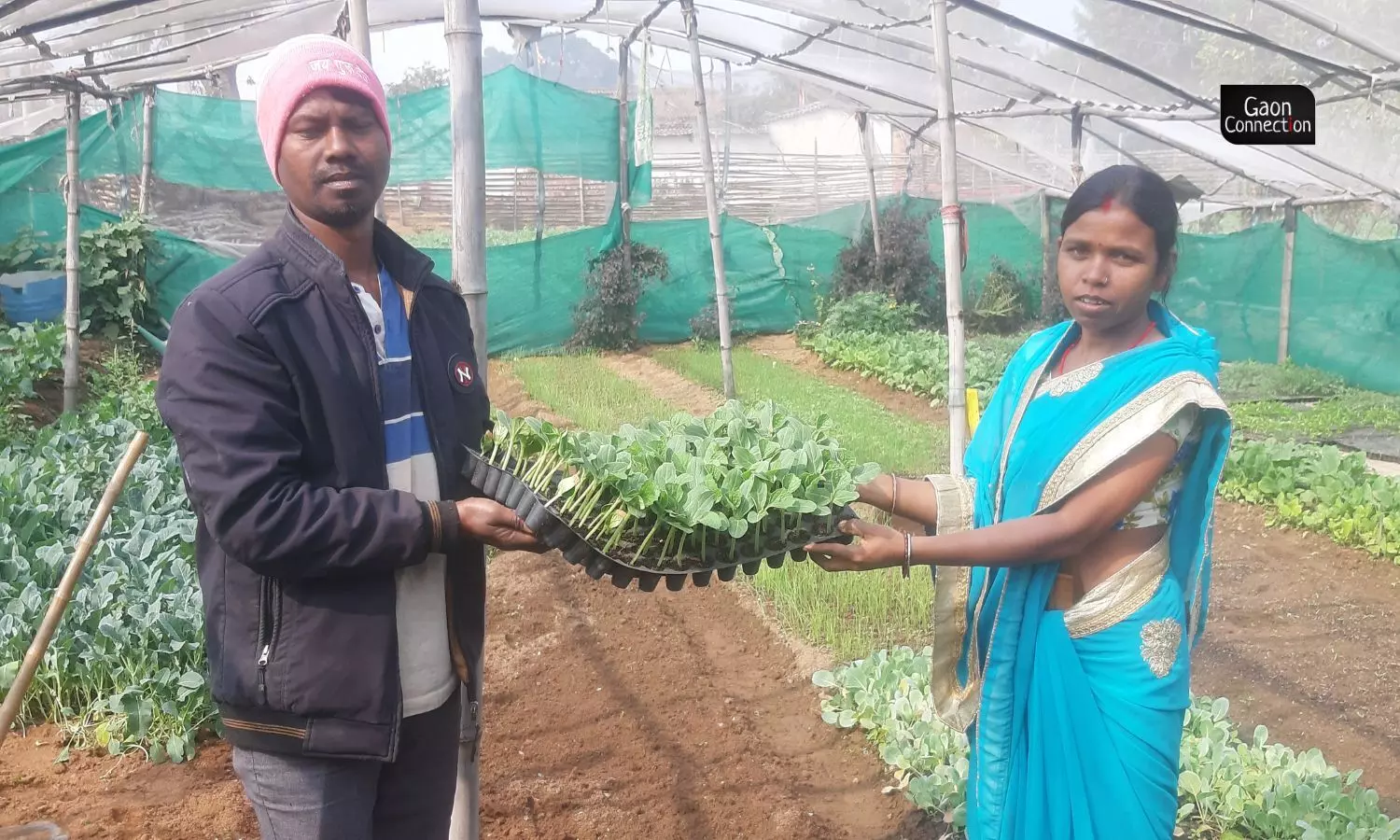
Each tray of 100 saplings, depending on which flower or vegetable sapling it is of, sells at anything between Rs 100 and Rs 300.
Thirty trays of 100 saplings each, are prepared at a time in their nursery and the farmers buy them 10 months of the year. Nursery activities slow down somewhat between March and June as water is scarce at this time.
“The trays with the saplings are then sold to farmers who will eventually transplant them into their land, and within two months each sapling starts fruiting,” Nand Kishor explained. About 200 farmers purchase saplings from them.
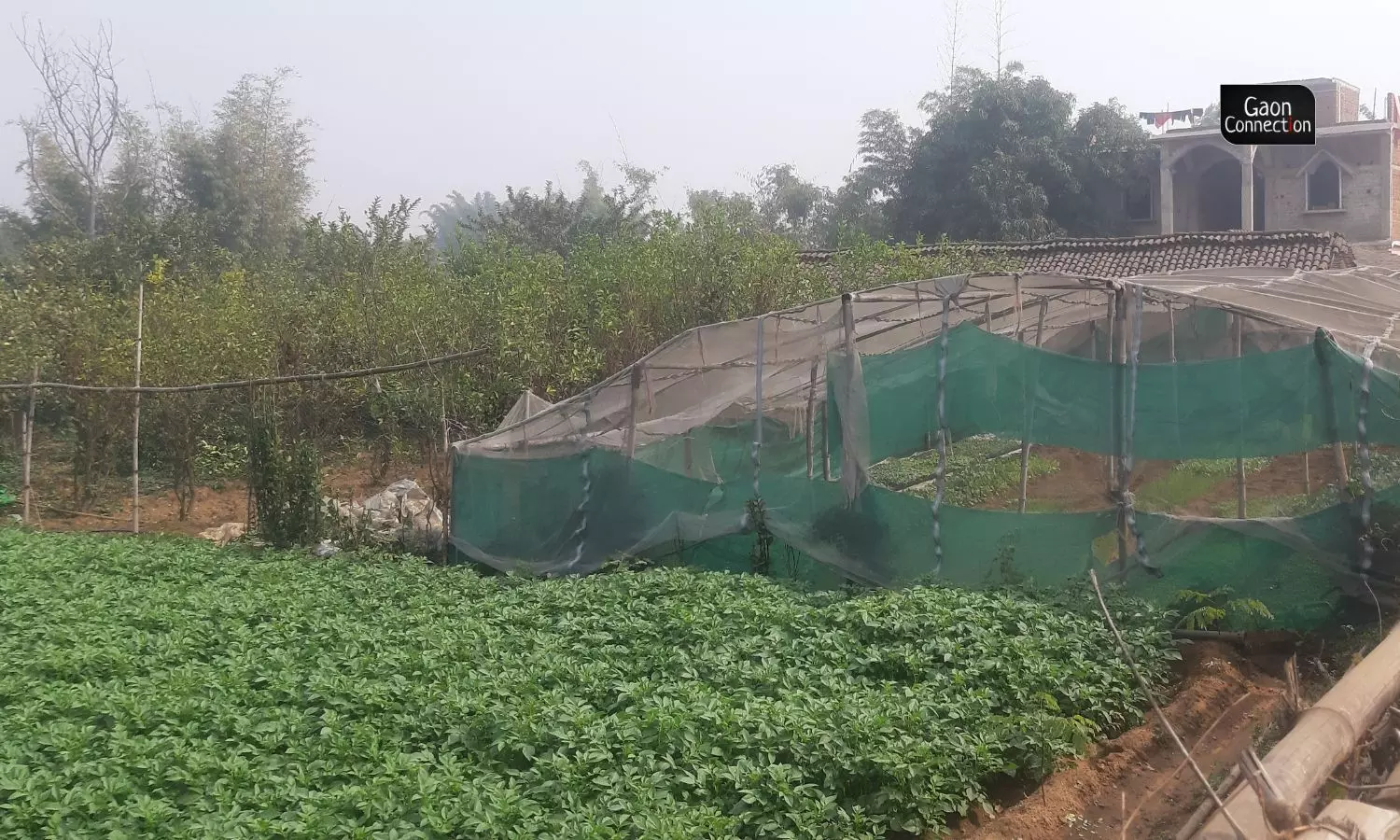
Things changed when the non-profit Transform Rural India Foundation (TRIF), stepped in. TRIF personnel encouraged Savita to start a saplings nursery on 4 dismils (100 dismils= 1 acre) of her land, and provided her the training to do so.
“A sapling of pumpkin from our nursery may yield as much as 35 kilograms of pumpkin. Regular ones yield just half that quantity,” Savita claimed. One tray of pumpkin saplings can be cultivated in 15 dismil plot of land and it ensures an income up to Rs 50,000 to the farmer with one time cultivation,” she pointed out.
Also Read: Uttar Pradesh: BomLife bio-fertiliser helping increase crop production in Basti
An agri entrepreneur and a leader
Meanwhile, Savita Murmu has become the president of the Laxmi Mahila Mandal SHG (self-help group) in Hesapoda. The SHG holds regular meetings and discussions on agriculture and how to optimise the produce from the land.
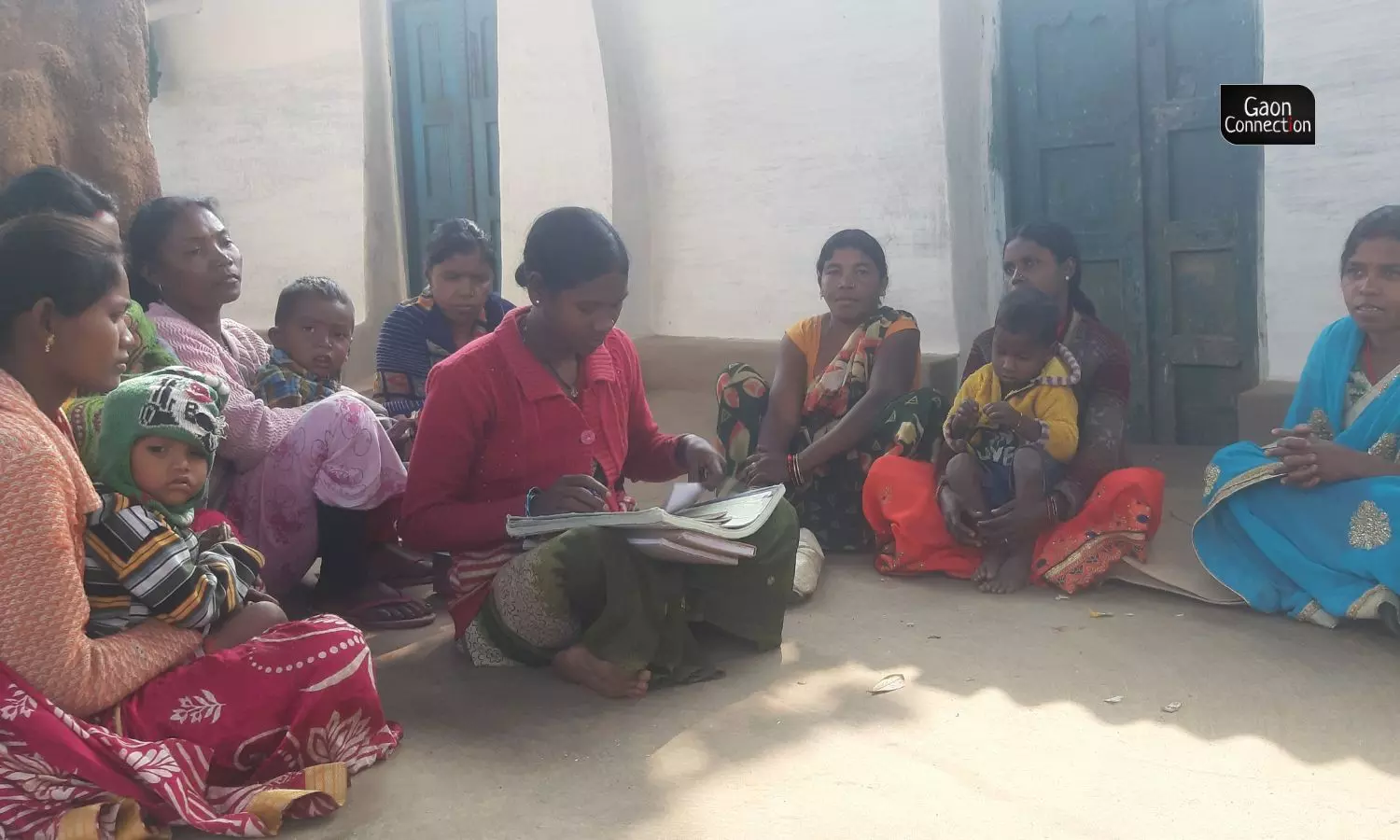
Hesapoda women participating at an SHG meeting in the village.
“Village women approach us for help to be trained in farm and non-farm based entrepreneurs,” Saud Alam, TRIF’s Youth fellow in Gola block, told Gaon Connection. “Savita Murmu is showing them the way,” he added.
This story has been done as part of a partnership with Transform Rural India Foundation.




















